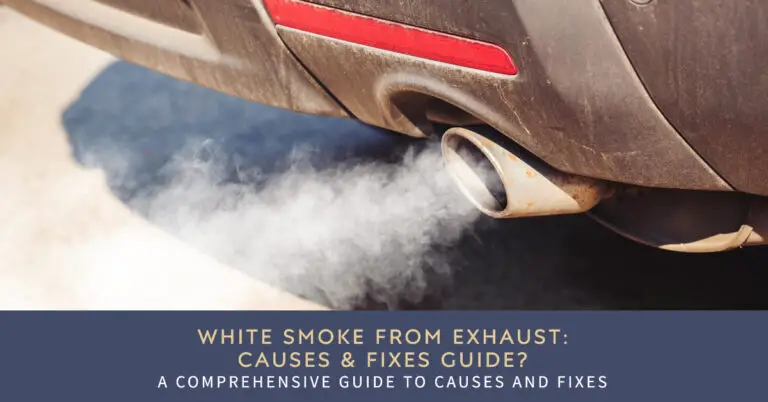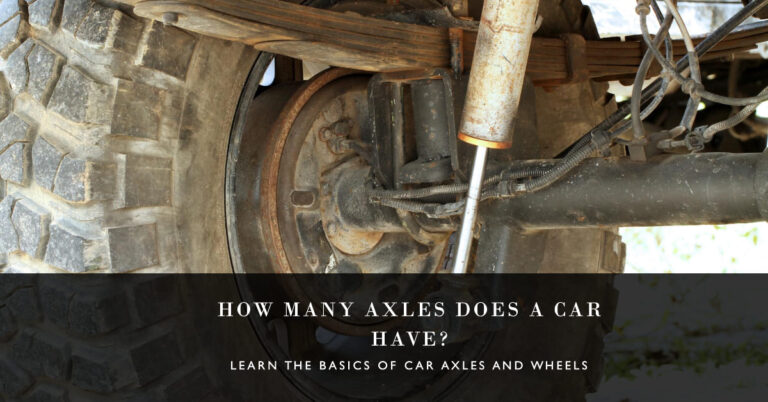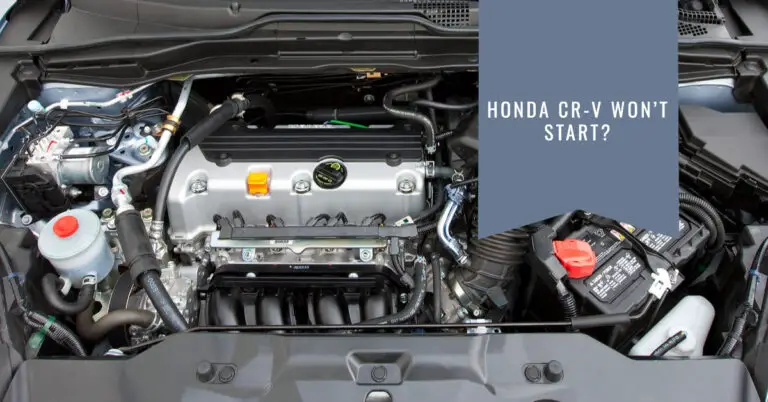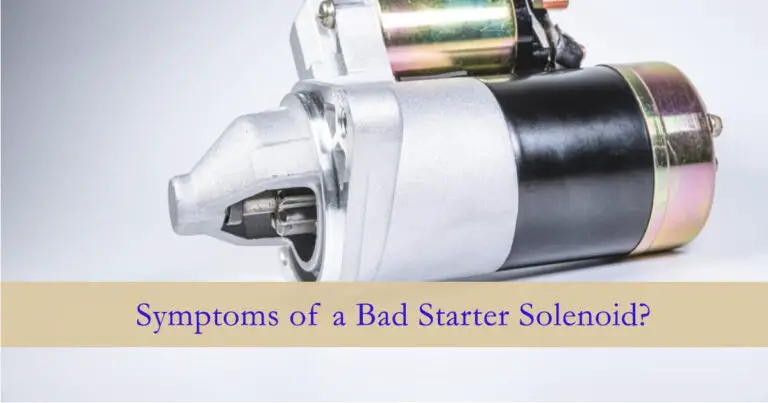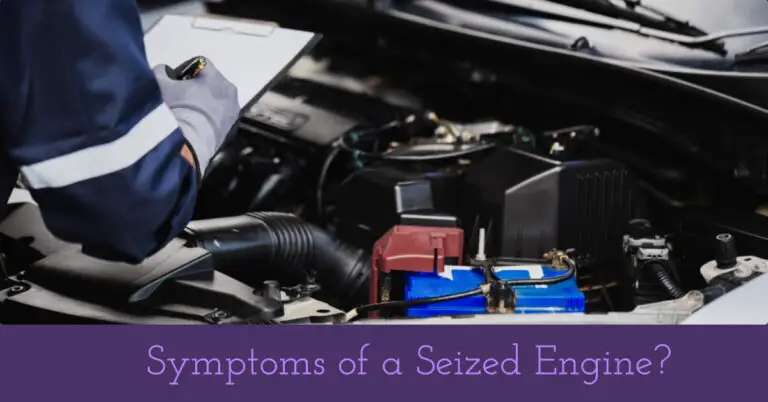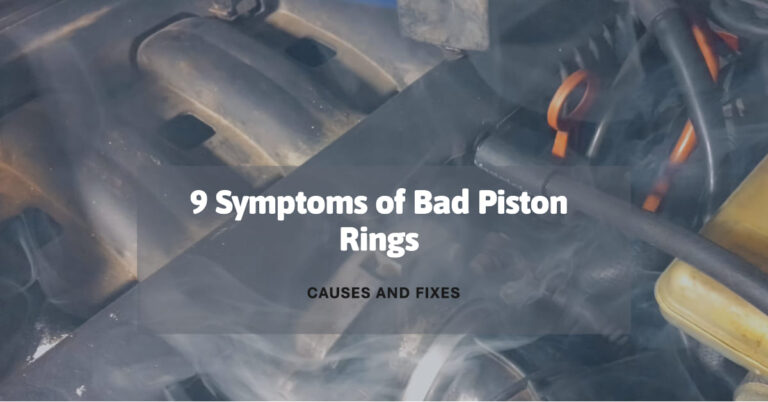Piston Slap: A 2024 Guide on What It Is and Whether You Should Worry
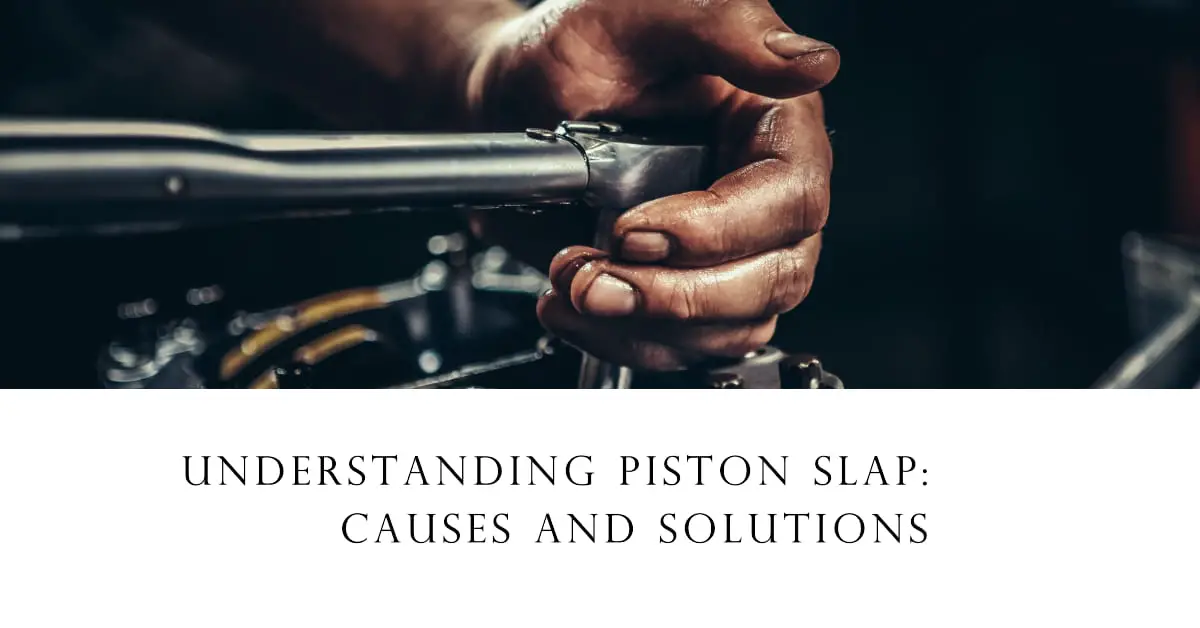
Piston slap is a common engine problem that many people may not be aware of. It occurs when the piston rocks or rattles within the cylinder, instead of moving up and down smoothly. This can cause a knocking sound that is especially noticeable on cold starts. While it may not necessarily mean your engine is about to fail, it is a sign that something is not quite right.
If you are experiencing piston slap, you may be wondering if you should be worried. The answer is not necessarily straightforward. While piston slap can be a sign of a more serious issue, such as worn-out bearings or a damaged cylinder wall, it can also be caused by something as simple as using the wrong type of oil. In some cases, piston slap may not even affect your engine’s performance, but it can still be an annoyance. Understanding what causes piston slap and how to address it can help you make an informed decision about whether or not to take action.
Table of Contents
What Is Piston Slap?
Definition
Piston slap is a condition that occurs when there is excessive clearance between the piston and the cylinder wall. This clearance causes the piston to move slightly from side to side, creating a knocking or rattling sound. It is usually most noticeable when the engine is cold and at low RPMs. Piston slap is a common problem in older engines, but it can also occur in newer engines that have been subjected to high mileage or other forms of wear and tear.
Causes
The main cause of piston slap is worn pistons or cylinder walls. When the piston-to-wall clearance becomes too large, the piston begins rocking side to side, creating what is known as a piston slap. It happens more frequently with aluminum blocks than iron. Short piston skirts, larger piston-to-wall clearances, and aluminum blocks are some of the factors that can contribute to piston slap.
Symptoms
The most obvious symptom of piston slap is a knocking or rattling sound coming from the engine. This sound is usually most noticeable when the engine is cold and at low RPMs. As the engine warms up, the knocking sound may become less noticeable or even disappear altogether. Other symptoms of piston slap can include reduced performance, increased oil consumption, and decreased fuel efficiency.
Should You Worry?
When it comes to piston slap, it’s natural to wonder if you should be worried about it. Here’s what you need to know:
Impact on Engine Life
Piston slap is a sign that your engine is on its way out. While it may still run for some time, you can expect its lifespan to be shortened. If left untreated, piston slap can cause damage to other engine components, leading to more expensive repairs down the line.
Repair Costs
Repair costs for piston slap can vary depending on the severity of the issue. In some cases, it may be as simple as replacing the piston or cylinder, which can cost a few hundred dollars. In more severe cases, however, an engine rebuild or replacement may be necessary, which can cost several thousand dollars.
Prevention Measures
Preventing piston slap from occurring in the first place is always the best course of action. Some measures you can take to prevent piston slap include:
- Regularly changing your oil and oil filter
- Using high-quality oil and oil filters
- Avoiding rapid acceleration and deceleration
- Avoiding overloading your vehicle
- Following your vehicle’s recommended maintenance schedule
While piston slap can be a cause for concern, there are steps you can take to prevent it from occurring and minimize its impact on your engine’s lifespan.
How to Diagnose Piston Slap?
Visual Inspection
One of the easiest ways to diagnose piston slap is by performing a visual inspection of the engine. To do this, pop the hood and take a look at the engine block. Look for any signs of damage or wear on the pistons, connecting rods, or cylinder walls. If you notice any visible damage, it could be a sign of piston slap.
Listening to the Engine
Another way to diagnose piston slap is by listening to the engine. Start the engine and listen for any knocking or rattling sounds. If you hear a knocking sound that gets louder as the engine revs, it could be a sign of piston slap. The knocking sound is caused by the piston hitting the cylinder wall as it moves up and down.
It’s important to note that not all knocking sounds are caused by piston slap. There are other issues that can cause similar sounds, such as a worn-out timing chain or a damaged crankshaft. That’s why it’s important to perform a visual inspection in addition to listening to the engine.
Conclusion
In summary, piston slap is a knocking sound that occurs when the piston rocks or rattles within the cylinder. It is caused by worn pistons or cylinder walls, creating too big of a distance between the piston and the cylinder wall. Piston slap can happen more frequently with aluminum blocks than iron.
While piston slap may be a sign that your engine is on its way out, it does not necessarily mean that it needs to be replaced immediately. It may still last for some time, but it is important to repair it as soon as possible to prevent any further damage to the engine.
If you notice any knocking sounds coming from your engine, it is recommended that you have it inspected by a qualified mechanic. They can diagnose the problem and recommend the best course of action to repair it.
In general, it is important to properly maintain your engine to prevent piston slap and other engine problems. This includes regularly changing the oil, using high-quality gasoline, and avoiding harsh driving conditions. By following these best practices, you can help ensure that your engine runs smoothly and lasts for many years to come.
FAQs
Is piston slap dangerous?
While piston slap is not necessarily dangerous, it is a sign that your engine is not functioning correctly, and it can lead to further engine damage if left unaddressed. It is best to have it checked out by a professional mechanic to determine the severity of the issue and the best course of action.
Can piston slap be fixed without an engine rebuild?
In some cases, yes. If caught early enough, piston slap can sometimes be fixed by replacing the piston rings or bearings. However, if the issue has progressed too far, an engine rebuild or replacement may be necessary.
Can piston slap cause engine failure?
While piston slap itself is not likely to cause engine failure, it is a symptom of larger issues within the engine that can lead to failure if left unaddressed. It is important to have any engine issues, including piston slap, checked out by a professional mechanic.
Can piston slap be prevented?
While there is no surefire way to prevent piston slap, there are steps you can take to reduce the likelihood of it occurring. Regular engine maintenance, including oil changes and keeping the engine clean, can help prevent excessive wear and tear on the engine components.
Does piston slap only occur in older engines?
No, piston slap can occur in engines of any age. However, it is more common in older engines or engines with high mileage due to the increased wear on the engine components over time.
Is piston slap always accompanied by a knocking sound?
While a knocking sound is a common symptom of piston slap, it is not always present. Other symptoms of piston slap can include reduced engine performance, increased oil consumption, and excessive smoke from the exhaust.

